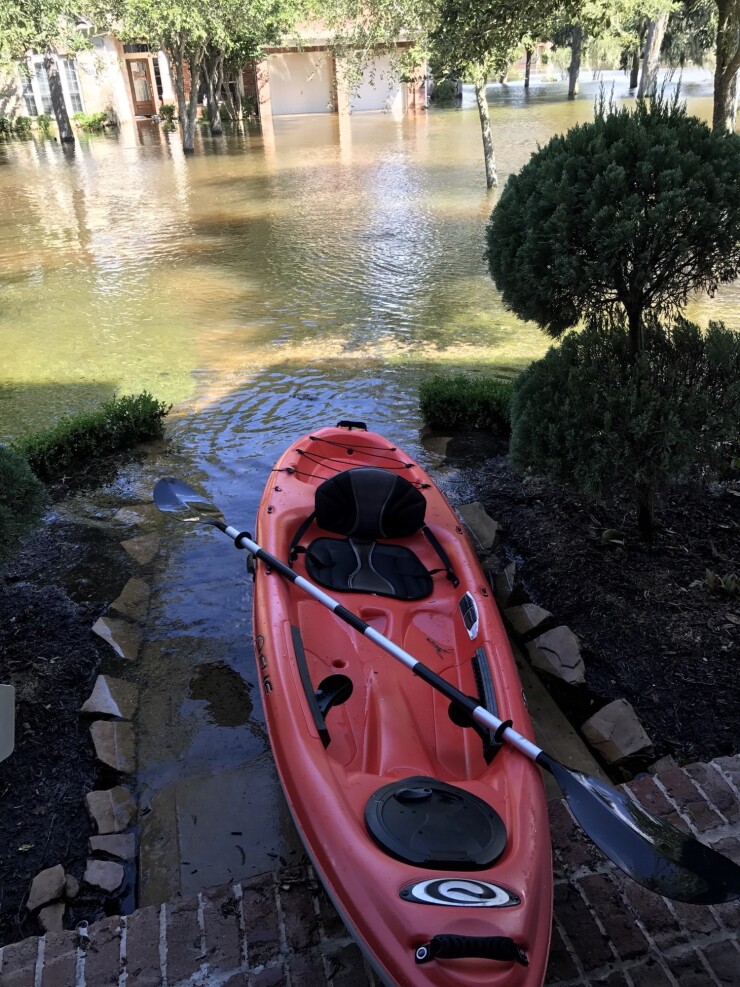It has been a little more than two weeks since Hurricane Harvey touched down in Houston. The flood waters have receded, most evacuees have been able to return to their homes and many businesses have gotten back to normal hours of operation. But the tragedy continues.
Piles of drywall, flooring, and family heirlooms line neighborhood streets. Parking lots are filled with disabled cars. Hundreds of homes continue to sit underwater and will undoubtedly be condemned. Homeowners without flood insurance are left to wonder how they will afford repairs.
These are the realities of a devastating storm and with Irma razing Florida, it is inevitable that misfortune will multiply. These are times when people need financial planners the most.
HELPING CLIENTS NAVIGATE TRAGEDY
About a week after the storm passed I received my first distress call from a client. He said that his home had taken in about two feet of water. Property was destroyed and he didn’t have flood insurance but his family was safe. We tapped his emergency cash reserves and set a meeting to discuss tax strategy once things had settled.

Throughout the week I received similar calls from six other clients explaining varying degrees of destruction. On one end, a young client simply needed help filling out the FEMA application for minor damage to her garage. On the other, an 80-year old couple lost their cars, clothes and home. They salvaged what they could and decided they’d level the remains, list the lot, and buy a new condo. We’re working together to figure out the insurance claims and developing a strategy to finance and coordinate life in the interim.
Read More:
In between those two extremes are families that have suffered incredible loss and are overwhelmed by the thought of rebuilding. For these clients, we continue to take things slow, listen, provide comfort, and lay out a strategy for eating the elephant one simple bite at a time.

For planners with clients affected by Irma, I have one piece of advice: Be prepared to learn as you go. Prior to last week, I didn’t know much about flood insurance and I could not have told you the first thing about FEMA claims. I’d never spent much time researching the tax rules concerning casualty losses and I’d never helped a client sift through a box of water logged insurance policies. However, with the help of the FPA community and the internet, my team and I have been able to compile the knowledge and resources our clients need to move forward.
You can’t believe everything you read on the internet and in times of crisis it is critically important to locate accurate information. To that end, here are some reliable resources I found helpful in answering client questions:
- For those who advise clients in Texas, you can turn to the State Bar of Texas which serves as a clearinghouse for disaster response resources in the state. They offer a comprehensive list of links and phone numbers for important contacts, access to free legal advice, and useful presentations such
as this one on flood insurance claims .
FEMA has a site devoted to rumor control. It is like Snopes for natural disasters. They also have auseful site that provides instructions for filing a claim for federal assistance .
- The IRS provides special tax relief for victims of natural disasters. Their website provides terrific tax information and resources for those impacted by Hurricanes
Harvey andIrma .
The Financial Planning Association set up a support community designed to help planners with practices impacted by the storms . If you need assistance, don’t be afraid to ask.
Finally, tragedy highlights how financial planning is a business about people. When a family has just lost their photos, furniture and clothes, they don’t want to look at a spreadsheet that explains budgeting or cash reserves. They want a person. They want someone who can hold their hands and walk them towards a better place. A place where they don’t have to decide how much drywall can be ripped out before the insurance adjuster arrives or what spray works best for eliminating mold. They want someone that will ease the burden of getting their lives back to normal.
And that is where we try to come in. The road to recovery will be long but through a combination of compassion, community support, and planning, we will all continue to get through this thing together.





